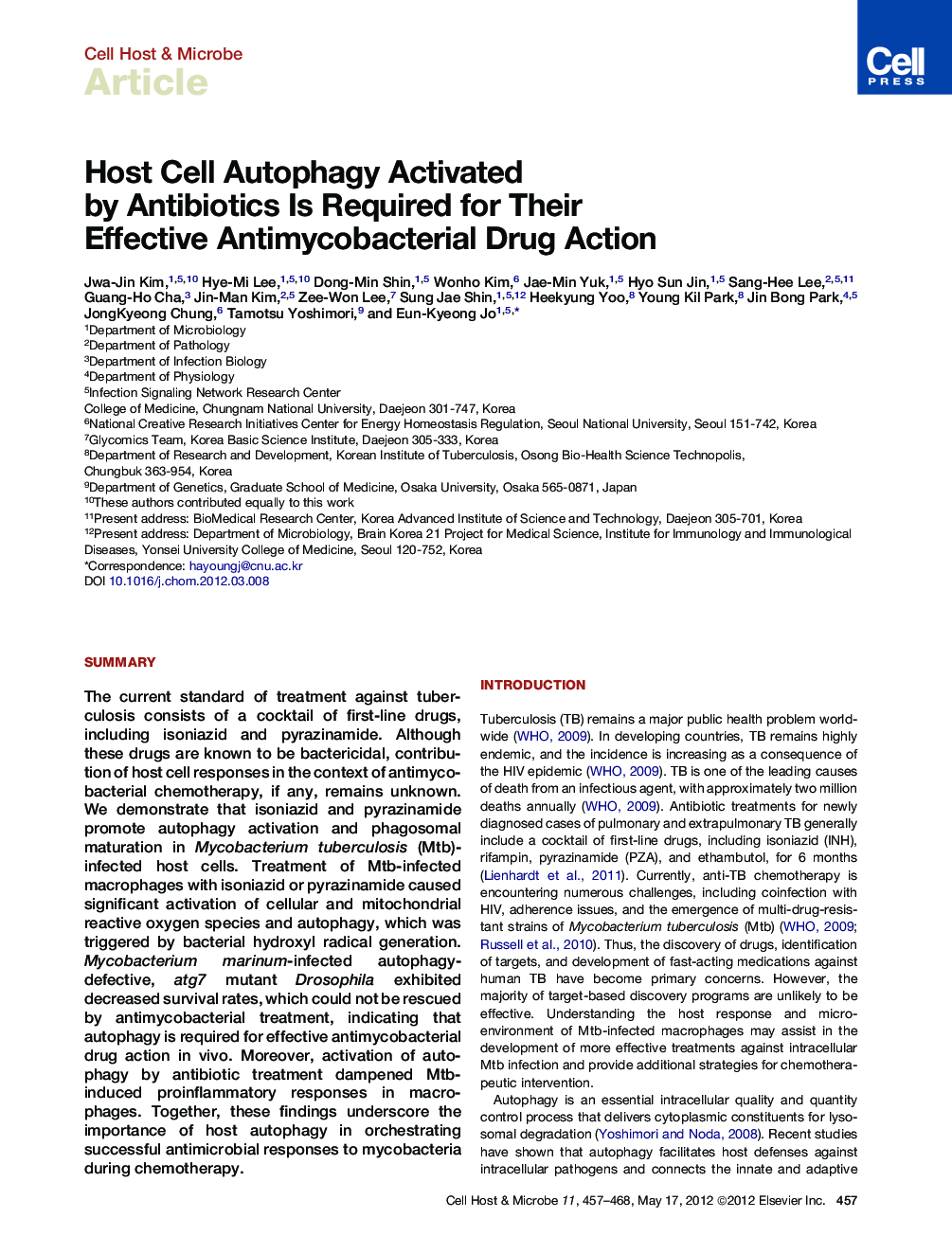| Article ID | Journal | Published Year | Pages | File Type |
|---|---|---|---|---|
| 4361221 | Cell Host & Microbe | 2012 | 12 Pages |
SummaryThe current standard of treatment against tuberculosis consists of a cocktail of first-line drugs, including isoniazid and pyrazinamide. Although these drugs are known to be bactericidal, contribution of host cell responses in the context of antimycobacterial chemotherapy, if any, remains unknown. We demonstrate that isoniazid and pyrazinamide promote autophagy activation and phagosomal maturation in Mycobacterium tuberculosis (Mtb)-infected host cells. Treatment of Mtb-infected macrophages with isoniazid or pyrazinamide caused significant activation of cellular and mitochondrial reactive oxygen species and autophagy, which was triggered by bacterial hydroxyl radical generation. Mycobacterium marinum-infected autophagy-defective, atg7 mutant Drosophila exhibited decreased survival rates, which could not be rescued by antimycobacterial treatment, indicating that autophagy is required for effective antimycobacterial drug action in vivo. Moreover, activation of autophagy by antibiotic treatment dampened Mtb-induced proinflammatory responses in macrophages. Together, these findings underscore the importance of host autophagy in orchestrating successful antimicrobial responses to mycobacteria during chemotherapy.
Graphical AbstractFigure optionsDownload full-size imageDownload high-quality image (122 K)Download as PowerPoint slideHighlights► Antimycobacterial antibiotics activate autophagy in Mtb-infected host cells ► Autophagy activation depends on cellular and mitochondrial reactive oxygen species ► Host cell autophagy is essential for antimycobacterial drug action in infected macrophages and flies ► Antibiotic-induced autophagy dampened proinflammatory responses in infected macrophages
